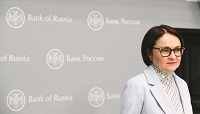Plastic petrochemicals circular economy 15-12-2018 - Arhive
Israeli-Australian company Electriq Global’s new technology stabilizes hydrogen in a recyclable liquid that can be pumped and transported just like gasoline.
That’s huge news, because it enables long-range electric driving with fast refueling – and it plugs right into the existing fuel logistics model.Water stabilized hydrogen technology
Plenty of people want to move on from gasoline and diesel. Some are environmentalists, some want to stop supporting the geopolitics of oil, some like the lightning-quick performance potential of electric motors.Water stabilized hydrogen technology
Whatever the reason, the fuel that powered the 20th century seems unlikely to maintain its transport lead through the 21st.
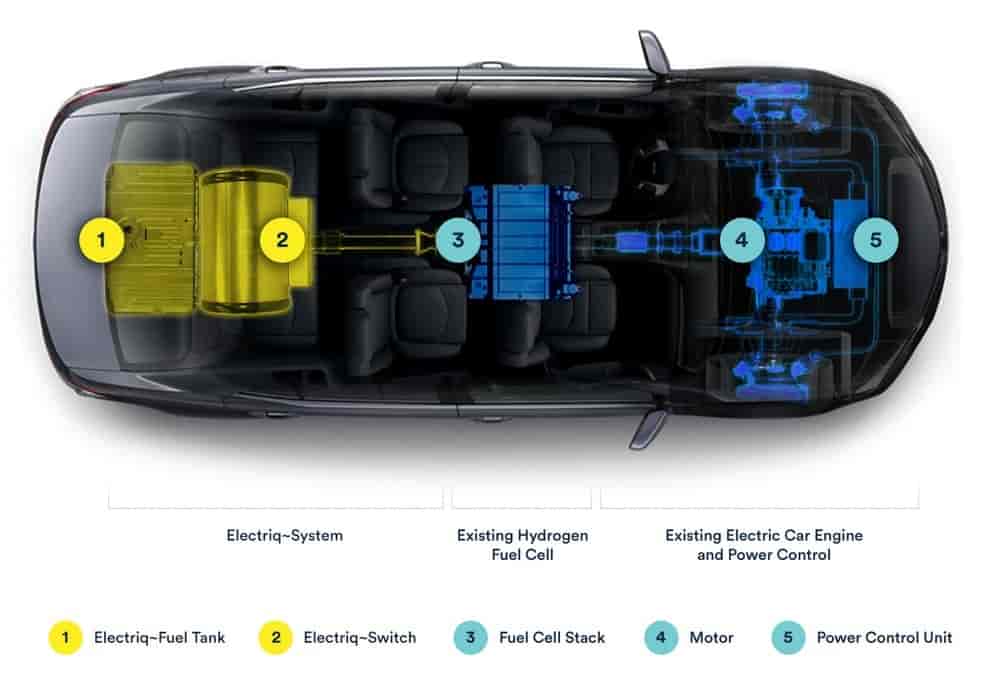
-Corbion and Total launch ‘second-largest PLA bio-plastics plant in the world’ in Thailand
Corbion and The bio-based sector is set to experience a boost after oil giant Total and Dutch biochemicals specialist Corbion recently announced that they have started operations at their new bio-plastics plant in Rayong, Thailand.
The facility, run by the joint venture named Total Corbion PLA, will be able to produce 75,000 tonnes of polylactic acid (PLA) per year.
The products will meet customers’ needs in a wide range of markets, including packaging, consumer goods, 3D printing fibres, and the automotive industries, Total Corbion PLA said in a statement.
Total launch ‘second-largest PLA bio-plastics plant in the world’ in Thailand
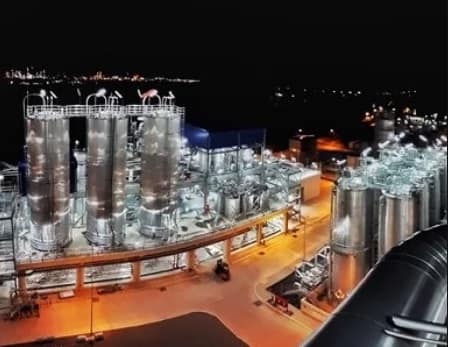
-Oil ends higher as Saudis reportedly plan to cut crude to U.S.
West Texas Intermediate and Brent crude oil futures moved sharply higher in Thursday’s trading session, with WTI up 2.8%, after a news report said Saudi Arabia plans to cut shipments to U.S. refiners to avoid expanding U.S. inventories.
Oil prices had already been climbing as traders examined data showing a rise in monthly Opec output, as well as a recent report of a weekly decline in U.S. crude supplies and production.Electriq believes it can produce and distribute the fuel so cheaply that it should sell for half the price of unleaded.(Credit: Electriq)
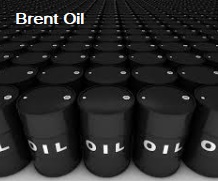
-Europe PP sellers manage to keep margin in December
Polypropylene (PP) producers in Europe are managing to keep hold of some spread at freely negotiated accounts.
– PP prices down
– 2019 supply to be tight
The December propylene contract fell by €100/tonne, and PP prices are falling by €50-80/tonne, buyers and sellers said.
The PP market is balanced, with no shortages in spite of several production problems.
INEOS’ Grangemouth plant in the UK is under force majeure restrictions, and this week sources said Braskem had declared force majeure from its Wesseling plant in Germany due to lack of propylene from a cracker at the same site.
Some other production was restricted because of propylene issues, caused by low water levels on the River Rhine.
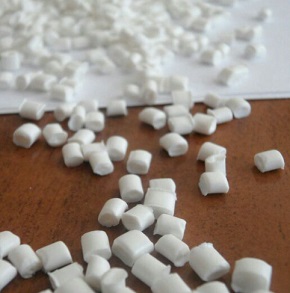
-ELG Carbon Fibre teams up with Boeing to take composite recycling to new heights
Boeing and ELG Carbon Fibre have joined forces to recycle aerospace-grade composite material into products such as electronic accessories and automotive equipment.
The agreement between leading aircraft manufacturer Boeing and ELG Carbon Fibre is ‘the first of its kind for the aerospace industry’. The partnership covers the carbon fibre surplus from 11 Boeing production sites and is estimated to reduce solid waste by more than one million pounds a year.
Electriq believes it can produce and distribute the fuel so cheaply that it should sell for half the price of unleaded.(Credit: Electriq)
Electriq believes it can produce and distribute the fuel so cheaply that it should sell for half the price of unleaded.(Credit: Electriq)
Electriq believes it can produce and distribute the fuel so cheaply that it should sell for half the price of unleaded.(Credit: Electriq)

-Mitsubishi Corp. Acquires Strategic Stake Hold In ELG Carbon Fibre
Mitsubishi Corp. (MC) has entered into an agreement to acquire 25 percent of shares in ELG Carbon Fibre Ltd. (ECF) from ELG Carbon Fibre International GmbH (ECFI), a subsidiary of ELG Haniel GmbH (ELG) in Germany.
The shareholders of ECF will become ECFI and MC. The agreement is subject to regulatory approval and other closing conditions.
ECF’s is engaged in reprocessing surplus carbon fiber reinforced plastic (CFRP) materials from manufacturing operations and end of life parts to produce and supply competitive, high-quality carbon fiber products to the market.
Through its own technology and expertise, ECF is the first company in the world to have established stable commercial production of reprocessed carbon fiber supplying to markets such as the automotive and electronics industries.
Electriq believes it can produce and distribute the fuel so cheaply that it should sell for half the price of unleaded.(Credit: Electriq)
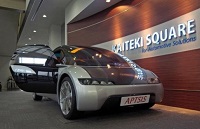
-Vietnamese enterprises advised to expand exports to Poland
Smooth transportation will help boost trading of goods between Vietnam and Poland – Illustrative image (Source: congthuong.vn)
Intensifying information connectivity, increasing product quality, developing a system of sales agents and distributors in Poland are necessary factors for Vietnamese enterprises who want to bring their products to the Polish market.
With a population of over 38 million and average per capita income of 24,000 USD a year, Poland is considered the largest market in Eastern Europe, and one of Vietnam’s leading trade partners.
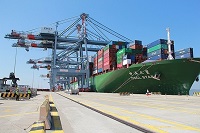
-AIMPLAS explores the roles of enzymes in sustainability
The Plastics Technology Centre (AIMPLAS) in Valencia, Spain is investigating the roles that enzymes can play in the plastics sector to improve the sustainability of its processes.
The ENZPLAST Project is addressing their role in the washing process of recycled materials, including the complex separation of multilayers, and how different enzymes act in the compost biodegradation process of polymers of different nature. AIMPLAS has involved enzymes in the synthesis of polymers, thus avoiding the use of metal catalysts to result in a safer process for people and the environment.
Supported by the Valencian institute of business competitiveness (IVACE) and cofounded by EU ERDF funds within the 2014-2020 ERDF Operational Programme for the Valencian Region, the ENZPLAST project seeks to address the challenge of implementing synthetic routes to obtain plastics safer for the health of people and eco-friendlier.
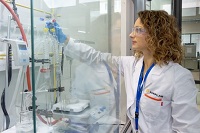
-Talking bioplastics in the year of the plastics strategy
“Biomass is the key ingredient that a plastics circular economy must rely on,” stated Stephen Wetmore of WWF South Africa at this year’s European Bioplastics conference.
The vast majority of delegates came to Berlin already committed to the proposition that bioplastics are the logical conclusion to the plastic waste problem that has dominated the agenda in 2018, and as such it was perhaps appropriate that the conference agenda was preoccupied with issues around end of life. Tim Sykes reports.
The 2018 European Bioplastics conference was very much framed around how to deliver circularity in plastics based on renewables, and we benefited from extended discussion of biodegradation, composting, and recycling.
It’s fair to say that no one yet knows how a mature ecosystem of biodegradable and recyclable, non-biodegradable bioplastics will look, let alone the wider landscape of renewable and fossil-based plastics.
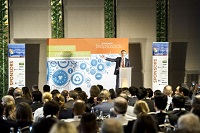
-Coca-Cola Announces New Investments in Enhanced Recycling as Part of ‘World Without Waste’ Vision
Coca-Cola is taking steps to be at the forefront of the enhanced recycling movement, which can potentially turn packages such as coloured PET bottles that may have been excluded from certain recycling streams into brand-new PET bottles.
The Coca-Cola system recently announced two investments to speed the development and deployment of breakthrough enhanced recycling technologies that will convert recycled plastic into food-grade PET for use in the company’s beverage bottles.
Unlike mechanical recycling, enhanced recycling allows recovery and reuse of PET plastic without material degradation.

-US oil surge makes Bank of Russia sceptical on Opec+ success
Russian central bank governor Elvira Nabiullina attends a news conference in Moscow on Friday. “The Opec+ deal allows to limit these risks, but doesn’t remove them,” Nabiullina said. “Events of this year clearly show how fast producers can increase shale-oil production when prices remain high.”
Russia’s central bank is not convinced that Opec and its allies’ supply cuts can revive the oil market as it’s being countered by surging US production.
The Bank of Russia cut its crude price outlook for next year to $55 a barrel from $63 on higher supply risks, mainly related to “fast output increase” in America, according to Governor Elvira Nabiullina.
Just a week ago the country’s Energy Minister Alexander Novak brokered a deal that led to the so-called Opec+ group agreeing to cut production by 1.2mn bpd in an effort to boost prices.
